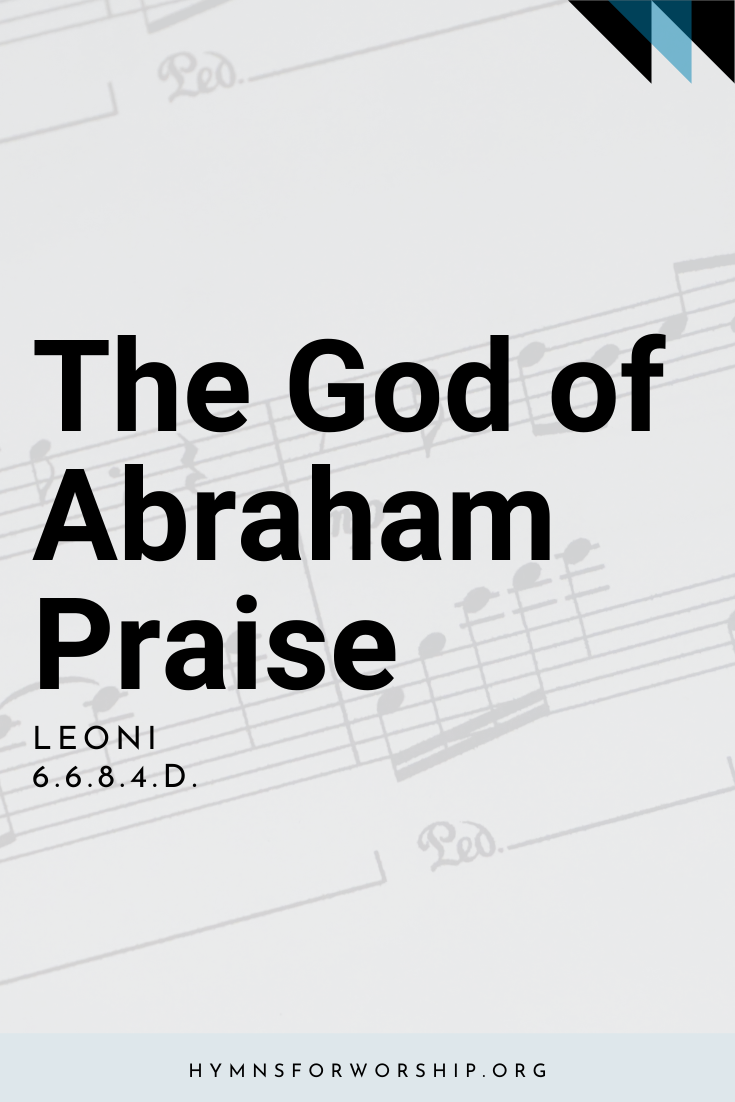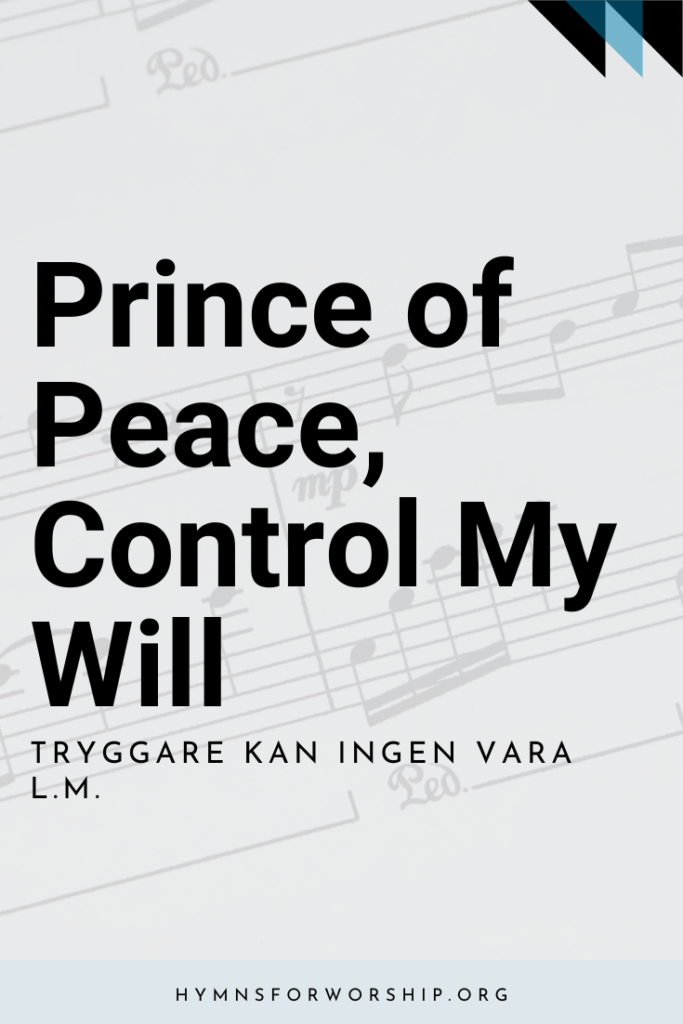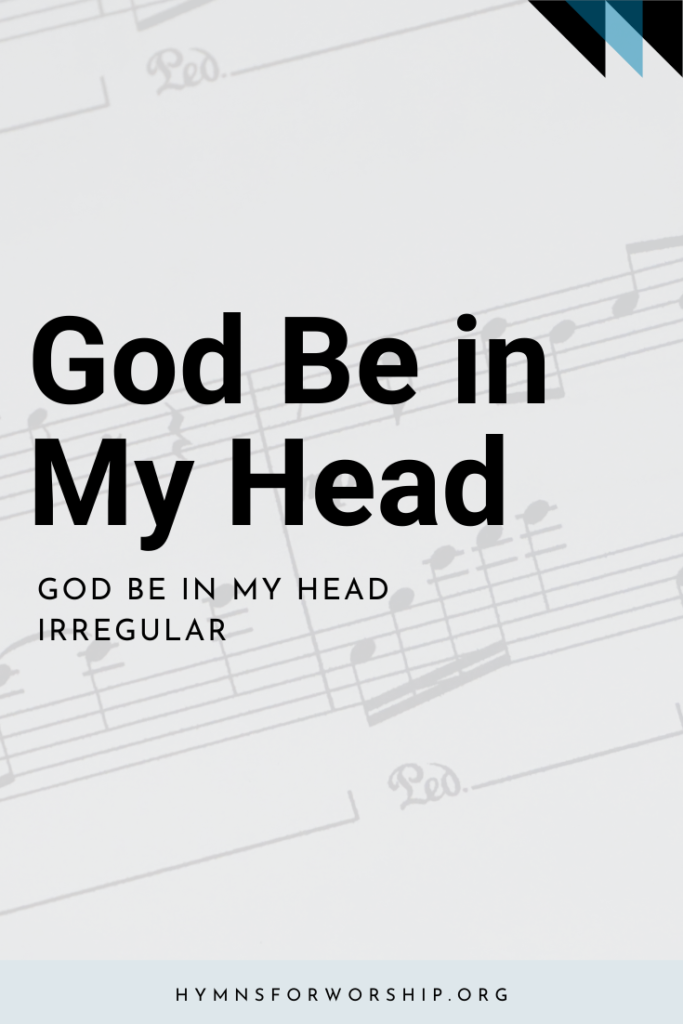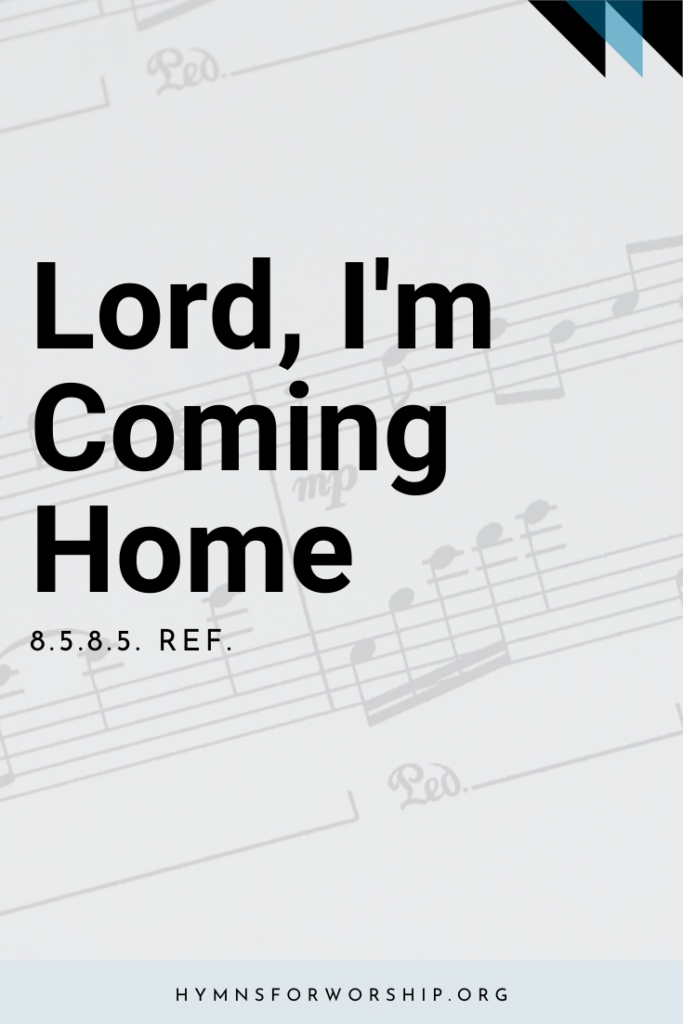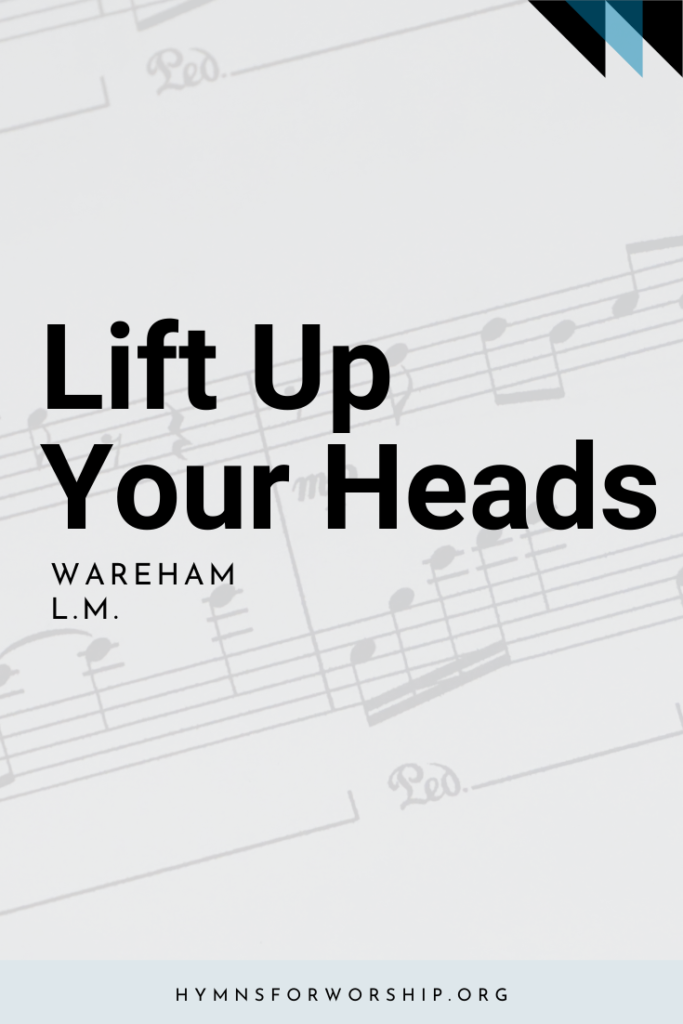WORSHIP >> Adoration & Praise
SDAH 11
The God of Abraham praise,
Who reigns enthroned above;
Ancient of everlasting days,
And God of love;
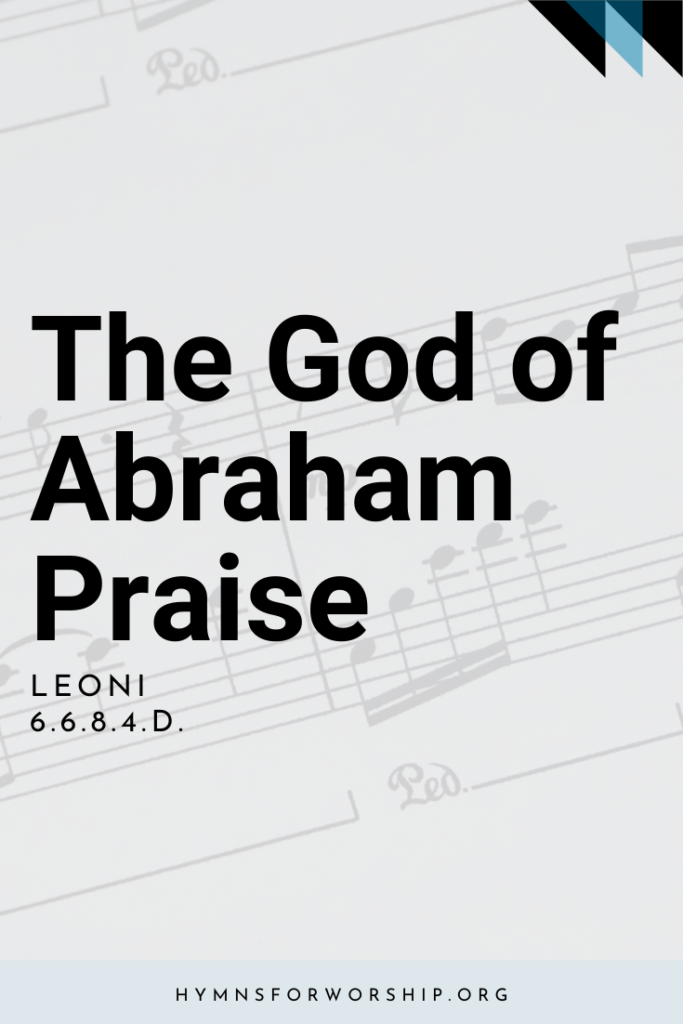

Text
1
The God of Abraham praise,
Who reigns enthroned above;
Ancient of everlasting days,
And God of love;
Jehovah! Great I AM!
By earth and heaven confessed;
I bow and bless the sacred name,
Forever blest.
2
The God of Abraham praise,
At whose supreme command
From earth I rise, and seek the joys
At His right hand;
I all on earth forsake,
Its wisdom, fame and power;
And Him my only portion make,
My shield and tower.
3
The whole triumphant host
Give thanks to God on high;
“Hail, Father, Son, and Holy Ghost!”
They ever cry;
Hail, Abraham’s God and mine!
I join the heavenly lays;
All might and majesty are Thine,
And endless praise.

Hymn Info
Biblical Reference
(a) Dan 7:9; 1 John 4:8; Ex 3:14, 15 (b) Ps 16:11, 144:2 (c) Rev 4:8, 5:12
Author
Thomas Olivers (1725-1799)
Year Published
c. 1770
Hymn Tune
LEONI
Metrical Number
6.6.8.4.D.
Composer
Meyer Lyon (1751-1797)
Arranger
Arranged from a Jewish Melody by Meyer Lyon
Year Composed
1770
Theme
ADORATION & PRAISE
Hymn Score
Piano Accompaniment
Notes
Get to know the hymns a little deeper with the SDA Hymnal Companion. Use our song leader’s notes to engage your congregation in singing with understanding. Even better, involve kids in learning this hymn with our homeschooling materials.
The Jewish creed was first formulated by Moses ben Maimonides (1135-1204) and consisted of 13 articles of faith; these were converted to a metrical version about a century and a half afterward. It is known as the Yigdal, which is the first word of the metrical version and means “magnify” or “extol.” A literal translation of the first article is: “Extolled and praised be the living God, who exists unbounded by time.” It is sung at synagogues on the eve of festivals and of the Sabbath, and also in Jewish homes at family worship on Friday evening. Thomas Olivers translated the Yigdal from Hebrew into English, and gave it a decidedly Christian character by his very free paraphrase, although his first and last stanzas reflect the original thought of the beginning and the end of this creed. He entitles it “A Hymn to the God of Abraham,” and nearly every line echoes a Scripture text. There were originally 12 stanzas arranged in three groups of four in each. The hymn was written about 1770 and first published in a tract in 1772.
Olivers was born in early September 1725 at Tregynon, Montgomeryshire, near Westpool in north central Wales; He lost both parents before he had passed his fifth birthday, and he was cared for by a succession of relatives, moving from one to another. He was apprenticed to a shoemaker, but by the time he was 18 years of age he was godless youth, poor, in debt, and miserable, and was compelled to leave his native village. He went to Bristol and there heard sermon by George Whitefield on “a brand plucked from the burning” (see Zech. 3:2). He took courage and hope, and was converted. He wished to join Whitefield’s band, but was dissuaded. However, with a changed lifestyle, he went back to Wales, paid his debts, and returned to Bristol to set up in his trade. He met John Wesley, who discerned Olivers’ latent talents and encouraged him to become one of his itinerant preachers. So in 1753 Olivers went as an evangelist to Cornwall and for 46 years until his death continued in this work. He assisted Wesley for some of his time in editorial work and also wrote a few hymns. He died suddenly in London in March 1799.
The meter of the hymn, as unusual 6.6.8.4. Doubled (the only one in SDAH), was governed by the melody that was given to Olivers y the public singer, Rabbi Leoni, or Myer Lyon (1751-1797). Leoni was a chorister at the Great Synagogue in London and also a less than successful opera singer at Covent Garden. He went to Dublin in 1772, stayed there for 12 years, returned briefly to London, and then from 1787 became chazzan or cantor, or superintendent of prayer meetings, of the English-German synagogue in Jamaica, where he died. He is commemorated by the name now given to the tune, LEONI. Some traditions claim that this melody was sung at the dedication of Solomon’s Temple, but it has not been traced back earlier than the seventeenth century. There is a close similarity tot he melody in a secular song, “Why, Soldiers, Why,” which was sung in 1729 at the Haymarket. Theater in London.

